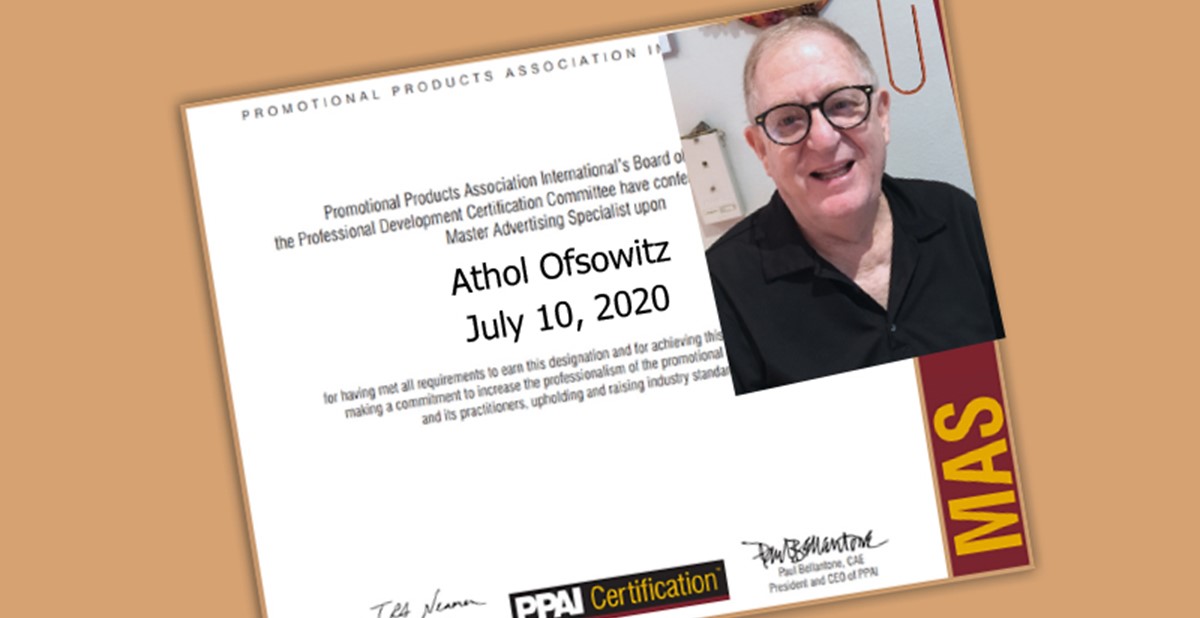A Day In The Life: It's Never Too Late To Learn

The last time Athol Ofsowitz, MAS, attempted to “put his behind in a chair,” he says, was more than 50 years ago, when he tried coercing his late mother into letting him attend the University of California, Berkeley. The then 20-year-old Ofsowitz, who is from South Africa but was living in Dublin, Ireland, at the time to pursue educational opportunities, met a U.S. Embassy official at a synagogue there. Upon hearing of the situation, the official offered to write a letter to his alma mater UC Berkeley on Ofsowitz’s behalf to introduce him as a potential student. Ofsowitz, to his great joy and surprise, learned he was accepted, and when he phoned his mother in South Africa to tell her the fantastic news—and to ask that she send her next check to California, where he was headed—she promptly told him, as mothers often do, that it was time to come home.
When it came to school, Ofsowitz’s interest in studying would either fizzle or divert elsewhere, and a few other attempts at school—including the trip to Dublin—had not gone as expected. “Everything else became important to me except studying,” he says. The next time he’d attempt—and succeed—at putting “his behind in a chair” would be to earn his CAS certification at 76, and later his MAS from PPAI—just in time for his 77th birthday. “If you’re serious about being in this business, you’d better educate yourself, because it’s changing on a daily basis, especially with the advent of the internet and social media,” he says. “I would also encourage everyone to take advantage of the multitude of services that PPAI has to offer.”
Ofsowitz’s accomplishment shows that no matter where you are in life, or in your career, it’s always a good time to further your education. He joined Irvine, California-based distributor Monkey Joe Speak two-and-a-half years ago—a decision he says is “one of the best” he’s made—and was previously with another distributor for 11 years, but most of his work experience has been in other industries. In South Africa, Ofsowitz worked in the liquor business, having owned liquor stores where he specialized in wine sales. When he emigrated to the United States with his wife and two children, he moved to Houston—where his sister and her family had emigrated earlier and where he lived for 18 years. He was naturally interested in the wine business, having previously exported South African wines to the U.S. He took up a position with a liquor distributor, where he helped start a wine division. Years later, he went to work for a high-end, contemporary Italian furniture business, where he progressed from an entry-level position as a warehouse employee to operations manager and sales manager. When Ofsowitz’s employer offered him the opportunity to relocate to Irvine, California, and work as the operations manager for a new store they were opening there, he accepted, and remained with that company for 13 years.
But in the early 1970s, when Ofsowitz lived in South Africa, he worked in promotional products; an industry he describes as vastly different from others he’s worked in. In South Africa, the industry did not consist of suppliers and distributors as separate entities, he explains, but rather, all services were offered by a single company, which employed their own sales reps who contacted clients directly. It was also an industry that Ofsowitz admittedly “knew nothing about.” “I bought into the business because I used to be a customer and I loved to see all the promotional products—I’d get excited—and an opportunity came for me to buy an interest in that business.” The company specialized in all promotional products, but the best-selling item was a zip-up vinyl suit bag imported from Taiwan and screen-printed in-house. “Back in those days, the only embellishments you could offer were silkscreening, debossing or engraving,” he says. Ofsowitz was involved in the business for four years, which he describes as “one of the largest promotional products businesses in South Africa” at the time. Ofsowitz circled back to the industry after his role at the furniture business became increasingly stressful and started to affect his health. It was during this time, he says, that he met Lesley Sattin, MAS, owner of Monkey Joe Speak, a business she started by selling t-shirts to PTA moms on the playground of her children’s school—and the person who really motivated and encouraged Ofsowitz to earn his certifications. “Les encouraged me to do the CAS. She let me know that PPAI was offering the courses at no-charge,” he says. “I admired people who had this behind their name, so I said ‘I am going to have something behind my name and show Les that I can do this,’” and accepted her challenge.
At press time, Ofsowitz has just earned his MAS certification; a goal he had pledged to achieve by July 12, his 77th birthday. “My main motivation is this: if I can do it at 76 years of age, anyone can do it, and you’re never too old to learn. You have to have the curiosity—you can’t teach that to people—you have to want to learn, and you have to accept that you don’t know everything… That’s what motivated me to go and learn and better myself.” He adds, “I hope I encourage everybody to educate themselves.”
Ofsowitz earned his certifications when PPAI was waiving fees for education sessions and certifications from April to June, in response to the coronavirus pandemic, and to help industry members take advantage of the Association’s educational offerings. During this time, there were a record 1,106 certifications, recertifications and lifetime certifications awarded.
–––––––––––––––––––––––––––––––––––––––––––––––––––––––––––
Danielle Renda is associate editor of PPB.

